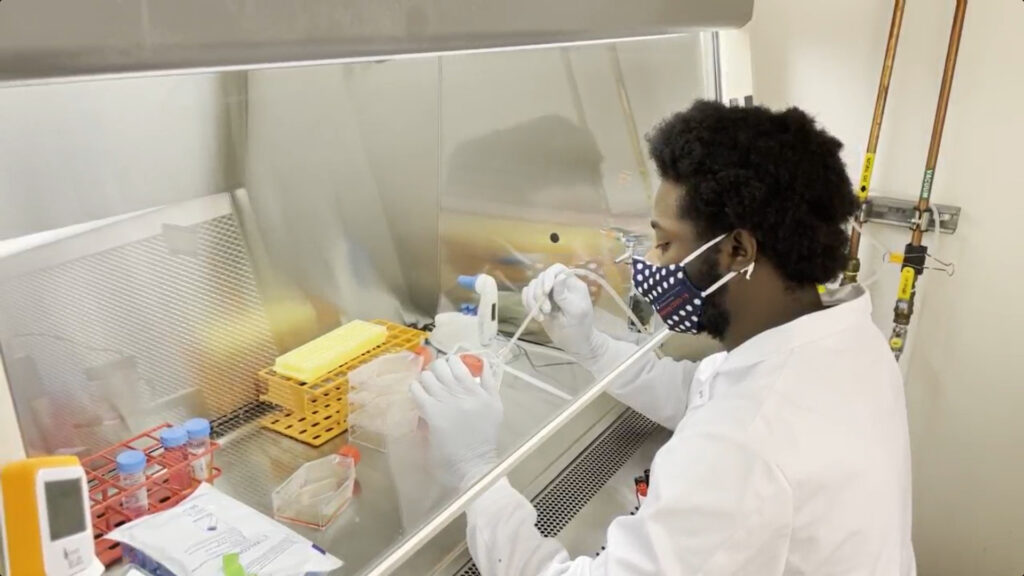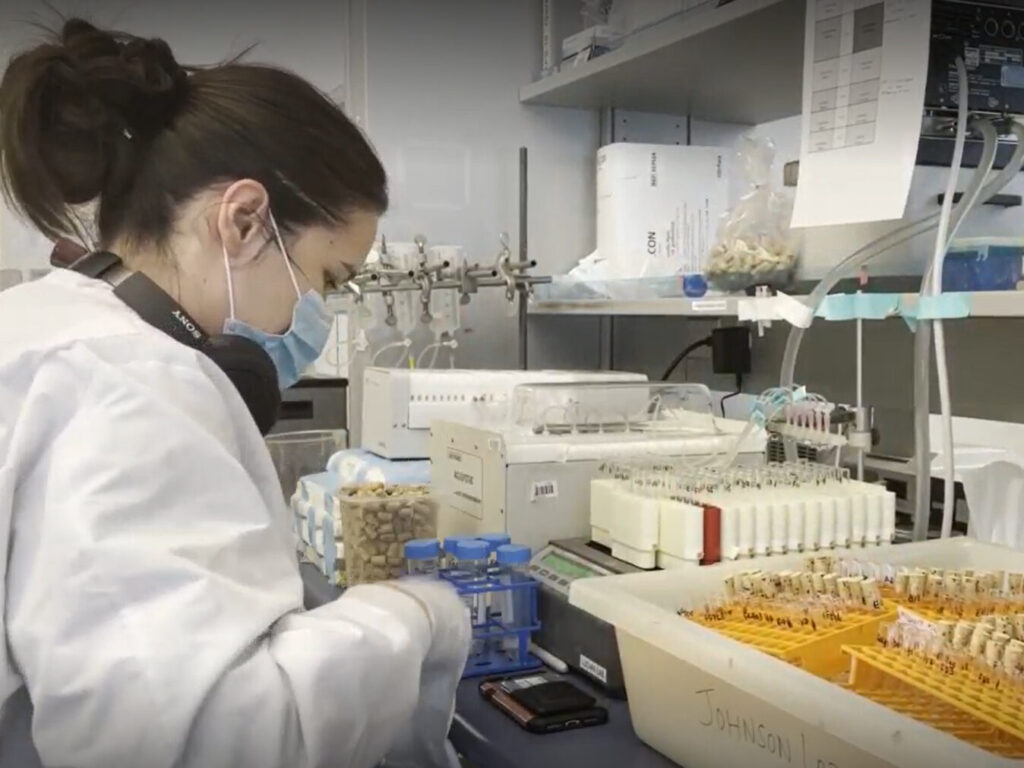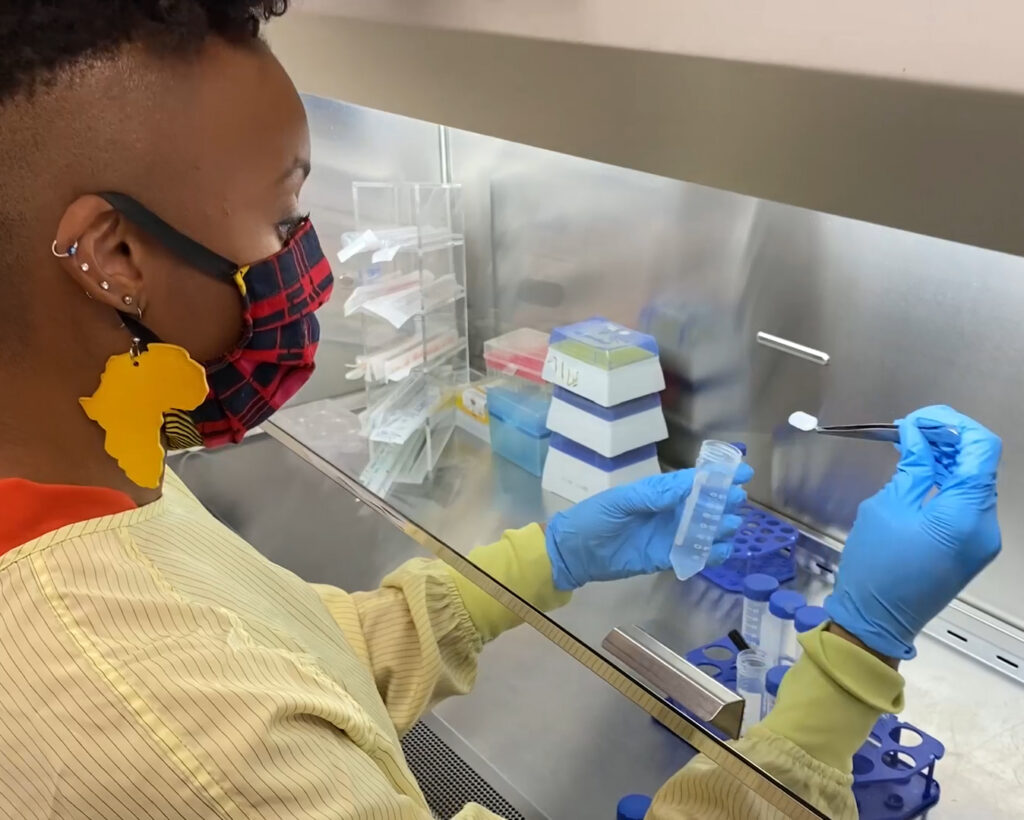
Training the next generation of researchers and clinicians in type 1 diabetes (T1D) is a central goal of JDRF’s global research strategy. Support of these emerging leaders is essential to ensure continued momentum in T1D research, and to facilitate translation of today’s evidence into tomorrow’s improved treatments and cures. JDRF seeks to attract and retain the brightest minds into the T1D field throughout their journeys to becoming independent researchers.
Research trainees are typically considered any researchers who are not yet independently conducting research. This can include students pursuing master’s degrees or Ph.D.’s, postdoctoral fellows, or junior clinician researchers. Trainees are in many ways the engine that drives research forward, as they are often the ones actively conducting the hands-on research activities in the lab or interacting with patients in the clinic.
The process
The journey to becoming an independent researcher can be long and challenging – and requires substantial funding to support. After a bachelor’s degree, which takes 3-4 years of undergraduate university courses, a trainee can enroll in a research-based master’s degree. This is typically 2-3 years and consists of coursework, independent research overseen closely by a supervisor (a university professor in a faculty position), and a thesis project. Some programs allow a master’s student to transition to a Ph.D. program after 1-year, otherwise PhD enrollment occurs following completion of a master’s degree. In Canada, a Ph.D. program is 4-5 years where students delve deeply into a specific research area, conducting original research, collaborating with mentors and peers, and presenting their findings at conferences. They complete coursework, pass comprehensive exams, and write a dissertation that contributes new knowledge to their field.

| JDRF currently funds 6 PhD students through the Canadian Islet Research Training Network (CIRTN). These students are mentored by renowned researchers in T1D, further enhancing Canada’s reputation for islet research and helping to secure the future of research. “JDRF Canada has long been a leader in supporting diabetes research, and also in ensuring that the next generation has the skills to positively impact diabetes research, treatment, and knowledge mobilization. The Canadian Islet Research and Training Network (CIRTN) is fortunate to partner with JDRF Canada to support enhanced training opportunities for graduate students and postdoctoral fellows who both contribute to important diabetes research through their work and represent future leaders in diabetes research in Canada.” – Patrick MacDonald, PhD, Professor at University of Alberta and lead of the Canadian Islet Research and Training Network (CIRTN) |
After obtaining a Ph.D., many researchers pursue postdoctoral fellowships to gain the additional specialized training and expertise that is required before they can land a tenure-track position in academia, a clinician-scientist position in a research hospital, or a position as a staff scientist at a company. These fellowships can last from 1-5 years. Postdocs work closely with established researchers in a specific lab or institution, honing their research skills, expanding their scientific network, and producing high-impact research publications.
| “JDRF fellowships transformed my scientific career, empowering me to pursue my research ideas, connect with the T1D community and ultimately propelled me onto a career path of innovation with the goal of improving the lives of people living with T1D.” – Heather Denroche, PhD, Director of Preclinical Development, Integrated Nanotherapeutics, Inc. and past holder of a JDRF Advanced Postdoctoral Fellowship |
Research trainees may also be on the pathway to becoming a clinician-scientist (i.e., a practicing physician that also conducts research). In this case trainees will complete a bachelor’s degree, medical school, and then during their residency training they can do research fellowships or a clinician investigator program. They will split their time between clinical training and research training, often towards the pursuit of a master’s or Ph.D. (alongside their M.D.).
The contribution

Not only do trainees conduct much of the hands-on research that is led by an independent researcher, but they often bring new skills, fresh perspectives and innovative ideas to the lab. Their diverse backgrounds, experiences, and viewpoints can lead to novel approaches and creative solutions to research questions. Trainees contribute by conducting comprehensive literature reviews to stay up-to-date with the latest developments in their field. They analyze existing research to identify gaps, refine hypotheses, and design experiments that build upon previous work. Trainees often manage specific projects within the lab and play an essential role in publication of the research (i.e., manuscripts or journal articles). As trainees progress in their careers, more experienced trainees may take on mentorship roles for newer members of the lab. They provide guidance, support, and training, fostering a culture of learning and growth. Trainee positions are typically funded from research grants, fellowships, and awards. JDRF supports trainees in many ways – through dedicated awards specifically given to trainees for salary and research support, research grants to established researchers that are often used to support the trainees conducting the awarded research, and by partnering with programs such as CIRTN to extend government funds to trainees.
| In 2022, donor funding supported over 40 research grants via JDRF. These funds largely support the primary costs of research – personnel. Over the approximately 40 grants, JDRF funds supported: · 33 postdoctoral fellows; · 47 PhD students; · 21 Master’s students; and · 15 professional trainees including laboratory technicians. “Trainees are the lifeblood of laboratory research, driving innovation and expanding the horizons of scientific discovery. Having been involved with JDRF’s fundraisers since my childhood diagnosis of T1D, and now being a trainee in a JDRF-funded laboratory, I understand firsthand the immense value of their unwavering support. Research funding from organizations like JDRF is pivotal in not only sustaining but also nurturing the next generation of scientists at the heart of the laboratory. This unique privilege, coupled with my deep personal connection to JDRF, has not only enriched our scientific endeavors but also fuels the promise of a future where breakthroughs in diabetes treatment and prevention are well within our reach.” – Lindsay Pallo, PhD Candidate at the University of British Columbia funded in part by the JDRF Centre of Excellence and research grants to supervisor Dr. Bruce Verchere. |
Career Development

While research is the central focus for trainees, career development and mentorship are integral parts of training. The eventual goal is for a trainee to establish an independent research position, whether that is as a university professor, a clinician scientist, or working within industry and private research.
The transition from trainee to independent position can be very difficult. Research funding is primarily obtained through competitive grants that rely on a past history of research funding – success begets success. JDRF helps to support this transition by funding newly independent researchers with Career Development Awards. These multi-year awards support the investigators newly independent research program, with support for new equipment, resources, and salary support where needed. In the case of clinician-scientists awards (ECRA), the funding protects the investigators time for research activities so that they can dedicate their limited resources to research rather than clinical practice while getting established.
| Advancing Cell Replacement Therapy – Dr. Andrew Pepper “With the critical support of JDRF, my laboratory will strive to preserve the legacy of the Edmonton Protocol while ushering in a new era of cellular transplantation,” Andrew Pepper, PhD, Assistant Professor in the Department of Surgery at the University of Alberta and recipient of a JDRF Career Development Award. |
| Examining Barriers to Diabetes Technology – Dr. Alanna Weisman “I believe our research will identify areas for improvement for governments, health care providers, and those living with type 1 diabetes. I hope we may see some policy changes to make technologies easier for all to access.” – Alanna Weisman, MD, PhD, Endocrinologist and Clinician-Scientist, Leadership Sinai Centre for Diabetes; Assistant Professor at the University of Toronto |
Why put donor dollars towards training?
Funding trainees is one of the greatest ‘bang for our buck’ investments JDRF can make! Trainee contributions to ongoing research is invaluable, and JDRF’s carefully selected trainees often become future superstars in the T1D field, who go on to mentor their own outstanding trainees. By funding trainees and encouraging them to stay within the field of T1D research, your dollars are helping us ensure that the future of T1D research is bright.
To support these future leaders of T1D research, please contact Jen Bavli at jbavli@jdrf.ca
For more information on JDRF Canada supported research trainees, please contact research@jdrf.ca
Where are they now?
| Researcher | Trainee Award | Current Position |
| Dr. Heather Denroche | Postdoctoral Fellowship (2014-2017) & Advanced Postdoctoral Fellowship (2018-2022) | Director of Preclinical Development, Integrated Nanotherapeutics, Inc. Developing new nanomedicines to treat immune diseases such as T1D. |
| Dr. Adriana Migliorini | Advanced Postdoctoral Fellowship (2018-2021) | Research associate, McEwen Stem Cell Institute (University Health Network) Developing human pluripotent stem cells as a source of insulin-producing cells for people living with T1D. |
| Dr. Dan Luciani | Career Development Award (2013-2019) | Associate professor, University of British Columbia researching stem cell-derived beta cells |
| Dr. Anne Pesenacker | Postdoctoral Fellowship (2014-2017), CCTN Postdoctoral Fellowship (2017-2018) | Career Development Fellow, University College London, UK Researching autoimmune function in arthritis and T1D. |
| Dr. Yasaman Aghazadeh | CCTN Postdoctoral Fellowship (2016-2017) | Assistant Professor, Institut de recherches cliniques de Montréal (IRCM) |
| Dr. Ahmad Haidar | Postdoctoral Fellowship (2013-2016) | Associate professor, McGill University Researching diabetes technologies and insulin therapies |
| Dr. Francis Lynn | Postdoctoral Fellowship (2007-2010) & Career Development Award (2011-2016) | Associate professor, University of British Columbia; Investigator, BC Children’s Hospital; Research Lead, JDRF Centre of Excellence at UBC Stem cell therapies for T1D cures. |
| Dr. Emmeline Heffernan | CCTN Postdoctoral Fellowship (2014-2016) | Pediatrician, Royal Belfast Hospital for Sick Children |
| Dr. Kate Verbeeten | CCTN Postdoctoral Fellowship (2018-2019) | Pediatric endocrinologist, private practice, Toronto |
| Dr. Ashish Marwaha | CCTN Postdoctoral Fellowship (2014-2015) | Assistant Professor, University of Calgary, geneticist researching basic immunology and member of CanScreenT1D: JDRF-CIHR Screening Research Consortium |
| Dr. Jennifer Bruin | Postdoctoral Fellowship (2011-2015) | Associate Professor, Carleton University Environmental factors affecting T1D development |
| Dr. Pat MacDonald | Career Development Award (2009-2014) | Professor, University of Alberta; Canada Research Chair in Islet Biology; Director of Alberta Diabetes Institute IsletCore; lead of the Canadian Islet Research and Training Network (CIRTN) researching insulin production from islet cells |
| Dr. Reza B. Jalili | Postdoctoral Fellowship (2011-2014) | Director of In Vivo Sciences, Aspect Biosystems Developing immunoprotective biomaterials. |
| Dr. James Surapisitchat | Postdoctoral Fellowship (2010-2012) | Regional Medical Scientific Director of Oncology at Merck Pharmaceuticals |
| Dr. Majid Mojibian | Postdoctoral Fellowship (2010-2012) | In Vivo Modelling Lead, BC Children’s Hospital Research Institute |
| Dr. Pedro Geraldes | Advanced Postdoctoral Fellowship (2009-2012) | Professor, Université de Sherbrooke; Canada Research Chair in Diabetes and Vascular Complications |
| Dr. Sylvie Lesage | Career Development Award (2008-2011) | Professor, Université de Montréal researching genetics of immune system cell populations |
| Dr. James Johnson | Career Development Award (2005-2010) | Professor, University of British Columbia; Research Lead, JDRF Centre of Excellence at UBC researching islet biology |
| Dr. Cristina Nostro | Postdoctoral Fellowship (2008-2010) | Senior Scientist at the McEwen Stem Cell Institute (University Health Network); Associate Professor, University of Toronto. Stem cell therapies for T1D cures. |
| Dr. Lucy Marzban | Postdoctoral Fellowship (2005-2007) | Associate professor, University of Manitoba researching beta cell death |
| Dr. Tim Kieffer | Career Development Award (2001-2006) | Professor, University of British Columbia researching stem cell-derived beta cells |
| Dr. Gregory Korbutt | Career Development Award (2000-2005) | Professor, University of Alberta; Scientific Director, Alberta Cell Therapy Manufacturing Facility; and a member of the original Edmonton Protocol team. |
| Dr. Janette Dufour | Postdoctoral Fellowship (2001-2003) | Professor, Texas Tech University Researching protective options for islet transplantation cells |



